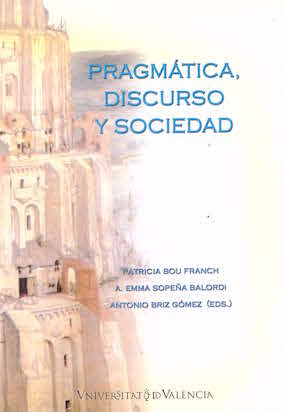La “cyberpolitesse”: Formes de l’adresse, ouverture et clôture dans les courriers électroniques
DOI:
https://doi.org/10.7203/qfilologia.12.4089Paraules clau:
correu electrònic, cortesia, rituals d'apertura i tancament, honorifics Resum
Resum
El present treball versa sobre la cortesia en Internet i, més concretament, sobre l'estudi d'intercanvis de correus electrònics en el context acadèmic. Aquest estudi se centra en les formes de tractament i en altres aspectes de les obertures i tancaments, i ve a confirmar el que generalment es creu sobre la naturalesa “híbrida” d'aquest tipus de comunicació (la qual empra un mitjà escrit però adopta, en alguns aspectes, el model conversacional de la comunicació oral). El treball conclou destacant el problema més general de la “rarificació” dels termes honorífics en el francès contemporani.
 Descàrregues
Descàrregues
Descàrregues
Com citar
-
Resum343
-
PDF (Español)362
Número
Secció
Llicència
 Este obra está bajo una licencia de Creative Commons Reconocimiento-NoComercial-SinObraDerivada 4.0 Internacional.
Este obra está bajo una licencia de Creative Commons Reconocimiento-NoComercial-SinObraDerivada 4.0 Internacional.
Tots els documents inclosos a OJS són d'accés lliure i propietat dels seus autors i/o institucions editores, i per tant, qualsevol acte de reproducció, comercialització, comunicació pública o transformació total o parcial necessita el consentiment exprés i escrit d'aquests.
Authors who publish with this journal agree to the following terms:
- Authors retain copyright and grant the journal right of first publication with the work simultaneously licensed under a Creative Commons Attribution License that allows others to share the work with an acknowledgement of the work's authorship and initial publication in this journal.
- Authors are able to enter into separate, additional contractual arrangements for the non-exclusive distribution of the journal's published version of the work (e.g., post it to an institutional repository or publish it in a book), with an acknowledgement of its initial publication in this journal.
- Authors are permitted and encouraged to post their work online (e.g., in institutional repositories or on their website) prior to and during the submission process, as it can lead to productive exchanges, as well as earlier and greater citation of published work (See The Effect of Open Access).



